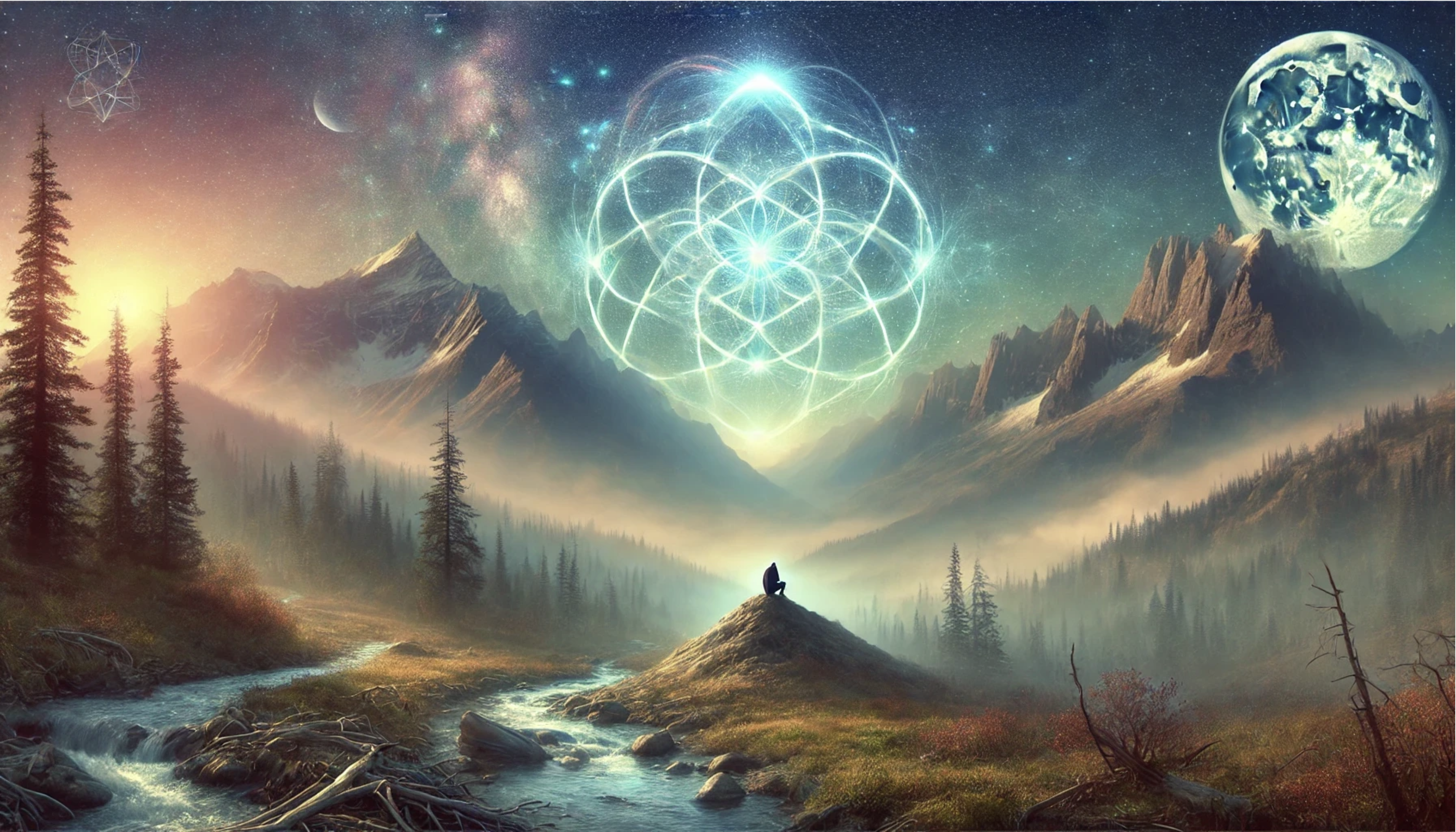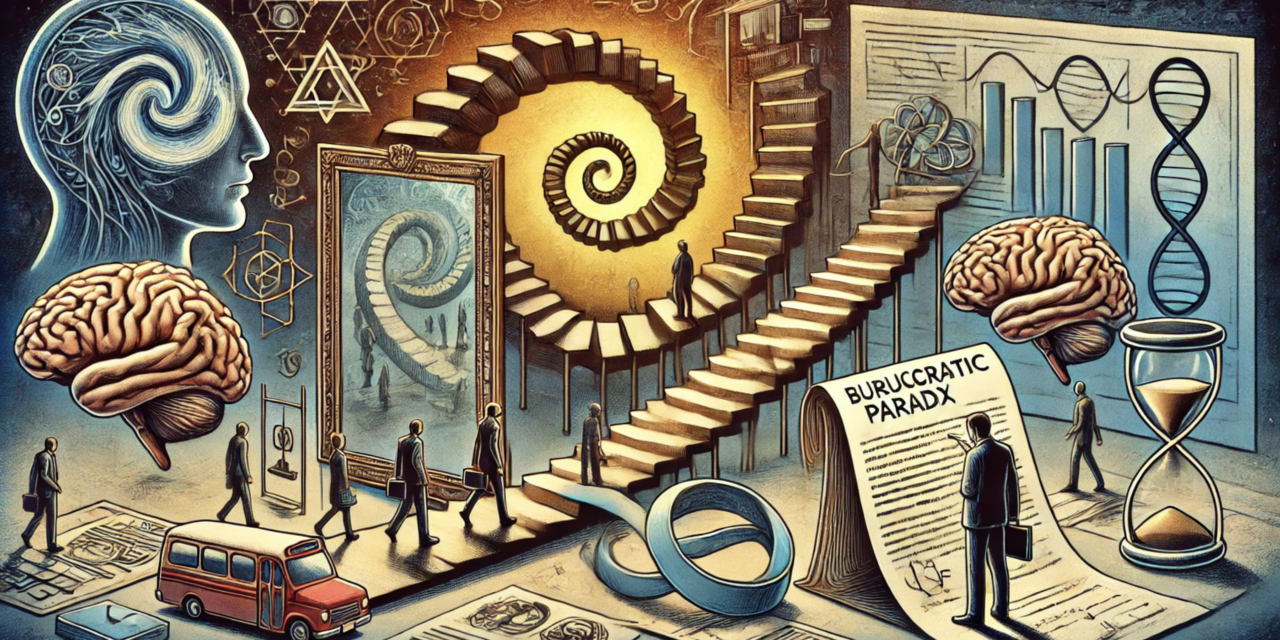Have you ever felt caught in a situation where every possible escape route circles back to where you started? Or encountered a concept that seems to twist back on itself, creating a paradox that defies straightforward explanation? These are the hallmarks of what philosopher Douglas Hofstadter calls a “strange loop.”
What is a Strange Loop?
A strange loop is a self-referential system that paradoxically re-enters itself, creating a cyclical pattern where progression leads back to the starting point. It’s a concept that can be as frustrating as it is fascinating, often appearing in various forms across different aspects of life, thought, and nature.
Strange Loops in Literature
One of the most famous literary examples of a strange loop is found in Joseph Heller’s novel “Catch-22.” The term itself has come to signify a no-win situation created by contradictory rules:
- A pilot can be grounded for insanity.
- To be grounded, the pilot must request it.
- Requesting grounding indicates rationality, proving the pilot is sane.
- Thus, the pilot cannot be grounded.
This creates a logical loop where the conditions for escape are negated by the very act of attempting to escape, leaving the individual trapped in a paradoxical situation.
Another profound exploration of strange loops in literature can be found in T.S. Eliot’s “Little Gidding,” part of his Four Quartets. Eliot writes, “We shall not cease from exploration, and the end of all our exploring will be to arrive where we started and know the place for the first time.” This line encapsulates the essence of a strange loop, emphasizing the cyclical nature of human experience and understanding. The journey of exploration ultimately brings us back to our origins, yet with a transformed perspective, highlighting the recursive and self-referential nature of existence.
Strange Loops in Philosophy and Consciousness
In his book “Gödel, Escher, Bach: An Eternal Golden Braid,” Hofstadter explores strange loops through the lenses of mathematics, art, and music, demonstrating how self-referential systems can create complex and often paradoxical outcomes.
The strange loop of existence is a profound example of this concept. Life creates consciousness, and consciousness reflects on and influences life, forming a loop that is both puzzling and profound. This recursive relationship highlights the interconnected and mysterious nature of existence.
A classical philosophical example of a strange loop is the Ship of Theseus paradox. This thought experiment asks whether a ship that has had all its components replaced remains fundamentally the same ship. As each part is replaced, the identity of the ship is called into question, looping back on itself in a self-referential cycle of identity and change. The paradox explores the nature of identity and continuity, demonstrating how something can change yet remain the same, a core feature of strange loops.
In their book “The Blind Spot,” scientist Adam Frank, theoretical physicist Marcelo Gleiser, and philosopher Evan Thompson explore why even modern science cannot bypass this strange loop. They write, “Science rests on how we experience the world. There is no way to take ourselves out of the story and tell it from a God’s-eye perspective. Instead of saying that science is a means for rising above the great, strange mystery of being human in the vast wide world, a better story is that science takes us deeper into that mystery, revealing new ways to experience it, delight in it, and, most of all, value it.”
Strange Loops in Everyday Life
Strange loops aren’t confined to literature and philosophy; they show up in everyday scenarios as well. Consider these examples:
- Bureaucratic Paradoxes: Have you ever been told you need experience to get a job, but you need a job to get experience? This catch-22 situation is a strange loop that traps many in a frustrating cycle.
- Decision-Making: Ever faced a choice where each option seems to invalidate itself upon deeper consideration? For instance, deciding whether to act spontaneously or plan everything out, only to realize that the decision itself impacts your spontaneity.
- Technology and Progress: The more we advance technologically, the more we seem to create new problems that need solving, leading to a continuous cycle of problem-solving that both progresses and complicates our lives.
The Significance of Strange Loops
Understanding strange loops helps us appreciate the complexity and often paradoxical nature of life. It reveals that many problems are not linear but cyclical, requiring us to think beyond straightforward solutions. Recognizing strange loops can lead to greater awareness and humility, as we realize that some aspects of existence are inherently self-referential and cannot be fully resolved.
Strange loops also resonate with the concept of transcendence. They challenge us to look beyond the surface and engage deeply with the recursive nature of our experiences. By doing so, we can find deeper meaning and connection in the seemingly paradoxical patterns of life.
Embracing the Mystery
Strange loops remind us that life is not always about finding definitive answers but about engaging with the mysteries that make our existence rich and profound. Whether through science, art, or personal reflection, embracing the strange loops in our lives can lead us to a deeper understanding and appreciation of the world and our place within it.
In conclusion, strange loops are not just abstract philosophical concepts; they are deeply embedded in the fabric of our everyday experiences. By recognizing and exploring these loops, we can gain a greater appreciation for the intricate and often paradoxical nature of existence, ultimately leading us to a more profound and humble engagement with the world.
Terry Cooke-Davies
12th July 2024
Special thanks to the AI assistance provided by ChatGPT (4o) from OpenAI in shaping this article, and creating the featured image.

Link to Article:
THE MYSTERY OF CONSCIOUSNESS: AWARENESS BEYOND AWARENESS AND THE SENSE OF COSMIC ONENESS

Link to Article:






